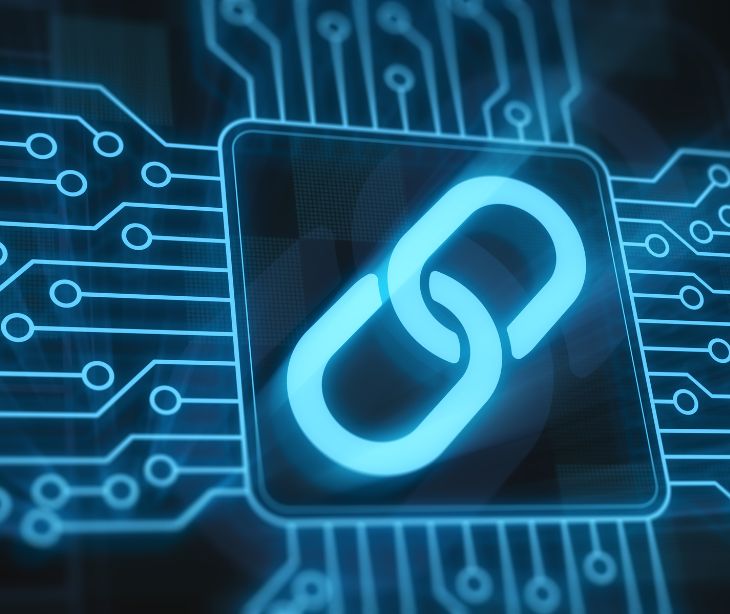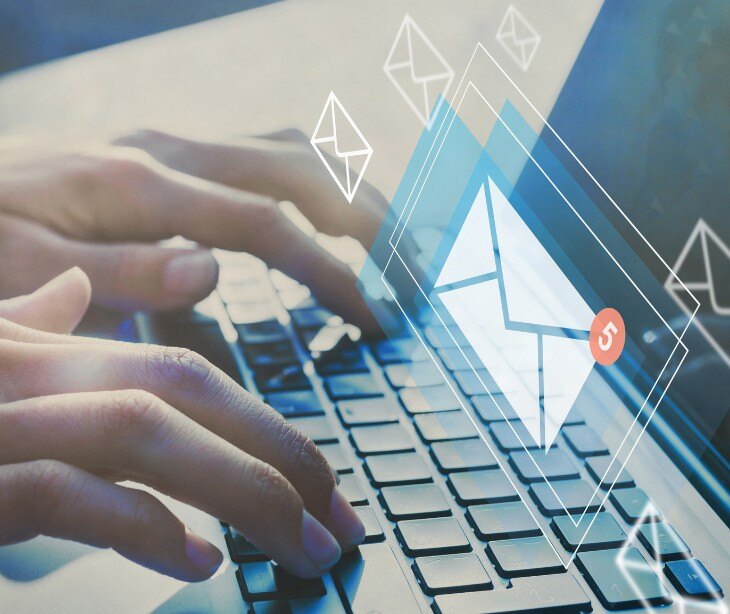
The role of blockchain in email communications is poised to become more influential, especially considering the forecast that blockchain technology's value will surge to nearly 1,000 trillion US dollars by 2032. This growth suggests that blockchain will affect various sectors, including email communications, revolutionizing how emails are sent, received, and secured.
How blockchain fits into email security
Blockchain boasts specific and tailored features that contribute to the email transaction process. Features like decentralization, encryption, and consistent record-keeping improve security. Once an email is sent, it is recorded it becomes part of the blockchain, this is only readable by the reader and the intended recipient. The decentralization provides that if there is a failure in security at one point, this does not extend to a ricochet effect.
When looking at the use of blockchain in healthcare communication, blockchain can offer an additional layer of protection. HHS offers guidance on the form of encryption HIPAA complaint email should use:
TLS 1.2 and 1.3 are what we should be using. Other versions of TLS and all SSL versions should be avoided, if possible.
Blockchain provides encryption keys that act as digital access cards and allow only authorized people to access protected health information (PHI). This is accompanied by a decentralized ledger to record transactions in a way that minimizes the risk of unauthorized access and provides a complementary solution to secure HIPAA compliant email.
An article from Cluster computing provides some more insight: Email services are centralized in servers, therefore users need to trust the ESPs (Email Service Providers) which will manage their email messages without encryption, as it is not established by the email protocols. This might incur into several problems as the user relays 100% on the ESP he has chosen. If the servers are down, their users will not be able to use their email accounts at all.
See also: What is TLS 1.2?
The decentralization of email services
- An email is sent and then divided into encrypted segments.
- These segments are distributed among various nodes within the blockchain network.
- No single node holds the complete email, which enhances the privacy of the content.
- Upon retrieval, these segments are recompiled and decrypted for the recipient to read.
- The storage of email parts across numerous nodes eliminates a single point of failure.
- This decentralized approach significantly complicates efforts by unauthorized parties to access or alter emails.
- It also minimizes the risk of service disruptions, as the absence of a central server reduces the chances of a complete system outage.
- The ownership of encryption keys rests with the users, granting them direct control over their email security.
Blockchain protocols based smart contracts replacing email protocol
Smart contracts are a part of blockchain that uses self executing contracts to enforce agreements based on predefined rules without intermediaries. The Cluster computer article provided the following conclusion on the use of smart contracts in email:
The combination of smart contracts with blockchain can provide a distributed ledger to manage email services. Thus, in this work we proposed an email protocol as a smart contract over a blockchain minimizing the main drawbacks of the current alternatives: spam, spoofing, lack of encryption, repudiation and centralization.
Smart contracts not only provide a method of privately transferring patient information in a way that integrates compliance into the contract code but also provide a method of ensuring email encryption. The increase in security options available allows healthcare providers to have additional protections against common everyday cybersecurity threats. A fact that supports the continuation of improved resource allocation where it matters, patient care.
See also: Top 10 HIPAA compliant email services
FAQs
What are the costs associated with using blockchain for email?
The costs of using blockchain for email typically involve subscription fees for enhanced security features, with prices varying based on the blockchain platform and the specific services offered.
Can blockchain email services integrate with my current email client (e.g., Outlook, Gmail)?
Currently, direct integration of blockchain email services with traditional clients like Outlook and Gmail is limited.
How does blockchain technology impact email marketing practices?
Blockchain technology can significantly alter email marketing by introducing immutable consent records.
Subscribe to Paubox Weekly
Every Friday we bring you the most important news from Paubox. Our aim is to make you smarter, faster.




